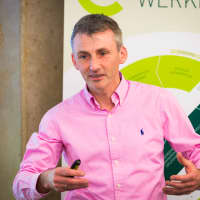Policy framework for VAC at an approved validation body
At a validation body, you can obtain proof of a professional qualification(opens in new window). A professional qualification is an official description of what you must know and be able to do in order to practise a profession.
You can obtain such a professional qualification through:
- an educational programme (in Dutch)(opens in new window)
- a vocational qualification programme (in Dutch)(opens in new window)that consists of a vocational training programme or a validation programme
VAC regulations
A common framework for the validation of acquired competencies (VAC)
On 26 April 2019, the Decree on the validation of acquired competencies (VAC) (in Dutch)(opens in new window) was approved.
On 19 July 2019, the Flemish Government approved the Order on the validation of acquired competencies (VAC) (in Dutch)(opens in new window). This will create a common framework for assessing and certifying acquired competencies.
The validation of acquired competencies takes places in a validation programme that consists of four steps:
Step 1: identifying = naming competencies,
Step 2: documenting = mapping out competencies,
Step 3: assessing = having competencies assessed,
Step 4: certifying = getting competencies certified.
A common quality framework for professional qualification courses
Professional qualification courses are those that address the competencies necessary to practise a profession. The common quality framework applies to all professional qualification programmes offered by training providers or validation bodies outside of education.
On 26 April 2019, the Decree on the Common Quality Framework for Professional Qualification Courses (in Dutch)(opens in new window) was approved.
On 19 July 2019, the Flemish Government approved the Order on the Common Quality Framework for Professional Qualification Courses (in Dutch)(opens in new window).
Flemish Qualification Framework (FQF)
Qualifications describe what you need to know and be able to do in order to practise a profession, start a course or participate in society.
In the Flemish Qualification Framework(opens in new window), qualifications are arranged at 8 levels(opens in new window), from primary education to university. This promotes the transparency and interchangeability of qualifications in the training landscape and on the labour market.
There are professional qualifications and educational qualifications. A professional qualification determines what you need to know and be able to do in order to practise a particular profession. An educational qualification reflects what you need to know and be able to do in order to embark upon further studies, function in our society or practise a particular profession.
The Flemish Government recognises professional and educational qualifications. You can find them in the qualification database (in Dutch)(opens in new window).
Thanks to the Flemish qualification framework, Woodwize has been able to realise its ambition to align all forms of training to the maximum extent. Only through that alignment is Lifelong Learning truly made possible!
European context
VAC is framed within a European policy of lifelong learning and validation of all forms of learning. Europe provides guidelines for VAC to member states. These guidelines are not imposed, but are a practical support.
- European recommendation (2012)(opens in new window)
- Guidelines for VAC: European guidelines for validating non-formal and informal learning (2015)(opens in new window)
- Report on the state of play for the various Member States: European inventory of validation of non-formal and informal learning (2018)(opens in new window)

